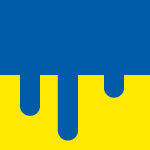01.09.2022 , in ((Europe on the Brink))
, ((No commenti))
Fazila Bhimji e Salina Momade
 International student refugees – students from countries outside the EU who were studying in Ukraine at the time when the war broke out, fled the same war as Ukrainian citizens. On arrival in Germany, however, they encountered differential treatment compared to Ukrainian refugees. Indeed, these third-country nationals have not been
...
International student refugees – students from countries outside the EU who were studying in Ukraine at the time when the war broke out, fled the same war as Ukrainian citizens. On arrival in Germany, however, they encountered differential treatment compared to Ukrainian refugees. Indeed, these third-country nationals have not been
...
+ Leggi di più
01.07.2022 , in ((Reflexive Migration Studies))
, ((No commenti))
Christine Lang
 Reflexive approaches in migration studies have revealed the problems of traditional constructions of the objects of migration research. Much less attention has been paid to the subjects doing the research and the mechanisms that prevent the perspectives of scholars with their own ‘migranticization’ experiences to be adequately represented in knowledge
...
Reflexive approaches in migration studies have revealed the problems of traditional constructions of the objects of migration research. Much less attention has been paid to the subjects doing the research and the mechanisms that prevent the perspectives of scholars with their own ‘migranticization’ experiences to be adequately represented in knowledge
...
+ Leggi di più
26.04.2022 , in ((Practices, Transnational Ageing))
, ((No commenti))
Thierry Meli
 Ob gewollt oder nicht – in der Schweiz verbringen viele Menschen ihr Lebensende in einem Altersheim wo sie den Alltag oft als klinisch und eintönig erleben. Initiiert von migrantischen Organisationen, wird in «mediterranen Abteilungen» versucht, herkunftsbezogene Lebenswelten für das transnationale Altern zu schaffen. Diese nehmen je nach historischem, sozialem und
...
Ob gewollt oder nicht – in der Schweiz verbringen viele Menschen ihr Lebensende in einem Altersheim wo sie den Alltag oft als klinisch und eintönig erleben. Initiiert von migrantischen Organisationen, wird in «mediterranen Abteilungen» versucht, herkunftsbezogene Lebenswelten für das transnationale Altern zu schaffen. Diese nehmen je nach historischem, sozialem und
...
+ Leggi di più
07.04.2022 , in ((Europe on the Brink))
, ((No commenti))
Robin Stünzi
 One month after the Russian invasion of Ukraine, nearly 4 million people have fled the country – a movement of population unseen in Europe since the Second World War. Europe’s response to this exodus has been similarly remarkable; the EU States have shown a degree of solidarity unobserved since the
...
One month after the Russian invasion of Ukraine, nearly 4 million people have fled the country – a movement of population unseen in Europe since the Second World War. Europe’s response to this exodus has been similarly remarkable; the EU States have shown a degree of solidarity unobserved since the
...
+ Leggi di più
11.01.2022 , in ((Politica))
, ((No commenti))
Philipp Lutz e Lea Portmann
Western countries repeatedly point to resettlement – the organized transfer of refugees to a safe third country – as a solution to persistent humanitarian crises. Yet, Philipp Lutz and Lea Portmann show how such resettlement can, paradoxically, be a way for states to legitimize limiting access to humanitarian protection The
...
+ Leggi di più
![]() International student refugees – students from countries outside the EU who were studying in Ukraine at the time when the war broke out, fled the same war as Ukrainian citizens. On arrival in Germany, however, they encountered differential treatment compared to Ukrainian refugees. Indeed, these third-country nationals have not been
...
International student refugees – students from countries outside the EU who were studying in Ukraine at the time when the war broke out, fled the same war as Ukrainian citizens. On arrival in Germany, however, they encountered differential treatment compared to Ukrainian refugees. Indeed, these third-country nationals have not been
...


 Reflexive approaches in migration studies have revealed the problems of traditional constructions of the objects of migration research. Much less attention has been paid to the subjects doing the research and the mechanisms that prevent the perspectives of scholars with their own ‘migranticization’ experiences to be adequately represented in knowledge
...
Reflexive approaches in migration studies have revealed the problems of traditional constructions of the objects of migration research. Much less attention has been paid to the subjects doing the research and the mechanisms that prevent the perspectives of scholars with their own ‘migranticization’ experiences to be adequately represented in knowledge
...